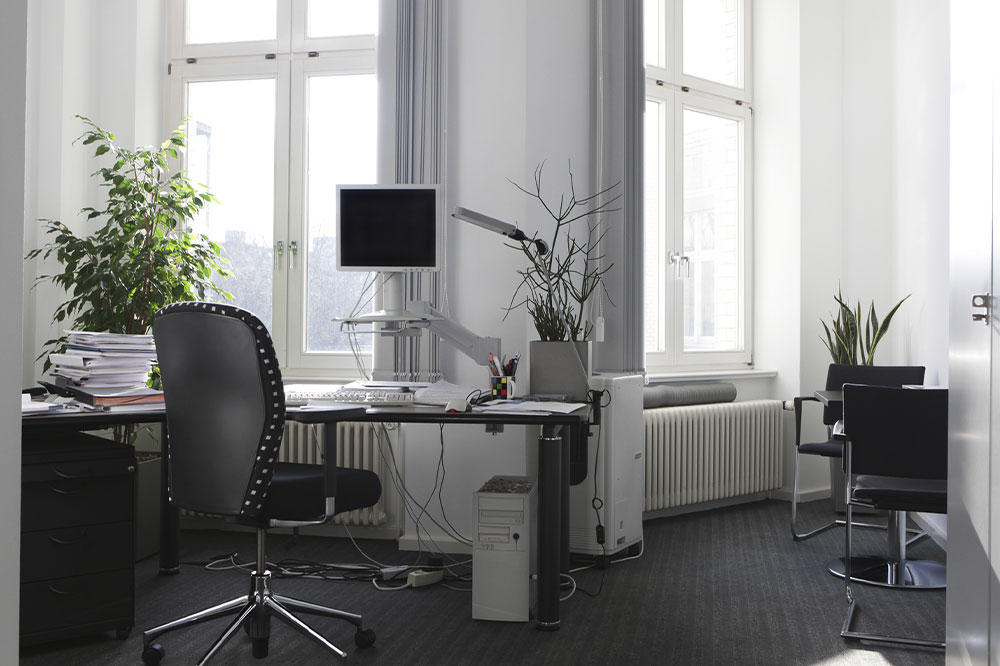
Types of office equipment and the benefits of renting
Employees require quality office equipment to remain productive at work. Keeping this in mind, employers purchase or rent out different types of equipment from dealers, such as tables, laptops, stationery, gadgets, and cupboards. Without these, the staff would find it hard to perform their jobs well and meet their targets, leading to a loss of revenue. Read on to learn about the different types of equipment in an office setting.
Furniture
Furniture like desks, chairs, and drawers make the office look slick and competent while helping employees work efficiently. Ergonomic adjustable chairs boost productivity and make people believe the organization cares for them. The right office furniture also creates a good impression on visitors and showcases the business’s values. Besides furniture, appropriate usage of colors and lighting in the office enhances its appeal. However, when buying office equipment from dealers and suppliers, employers must prioritize function over form.
Computers, software, and internet
No office today can dream of functioning without computers. Depending on the nature of their role, some employees may prefer laptops, while others may prefer desktops. Buying these in bulk helps businesses save money. Besides computers and smart devices, organizations require software like word processors, CRM systems, antivirus programs, and data processing solutions. Most of these are available on a subscription basis, with annual plans being cheaper than monthly packages. Finally, a stable power supply and internet connection are crucial to power up computers and software and facilitate information sharing internally (among employees) and externally (with clients and dealers).
Kitchen and pantry supplies
Vending machines for tea, coffee, and other beverages are indispensable in an office. They keep employees energized and enable them to function to their full potential. Many modern offices have a pantry setup with fridges, microwaves, and a common space for the staff to sit and enjoy their meals together. The pantry may also have drinking water facilities, cutlery, cups, plates, tissues, and other essentials. Whether a small or large office, a well-stocked pantry can encourage and support employees, boosting their morale.
Stationary
Every office needs stationery like pens, papers, notebooks, binders, files, folders, boxes, post-it cards, business cards, envelopes, stamps, and mailing labels. These are regularly bought and replenished to ensure employees are productive and efficient. Some offices have their logos printed on the stationary, which is a great marketing tool. Lawyers, doctors, and high-level management in large corporations also have unique letterheads. That said, some prefer going eco-friendly and may thus limit their paper use and opt for soft copies instead.
Storage equipment
Offices install cupboards, cabinets, and drawers to preserve necessary documentation. But with technological advancement, many choose to keep paperwork to a minimum and instead use digital storage. Flash drives, hard disks, pen drives, and other storage devices are helpful for businesses, both big and small. Some organizations have special storage arrangements for product prototypes and samples from other firms.
Waste and recycling tools
Waste disposal and recycling tools are essential too. Businesses that are clean and contribute to a greener environment improve team spirit and the workforce’s morale. Paper shredders, for example, enable recycling and help organizations destroy confidential information safely. Recycling bins keep the office tidy and enhance the organization’s image.
Besides the equipment mentioned above, photocopiers, printers, scanners, and fax machines are commonly found in offices to help employees perform their jobs effectively. Some organizations also have meeting and conference rooms with mics, speakers, projectors, and lighting equipment that help conduct meetings and presentations. Further, offices might have wellness and fitness areas with equipment like treadmills and yoga accessories.
Why rent office equipment?
When setting up an office, most people consider buying office equipment. Buying is suitable for general equipment that can be moved easily, such as laptops and stationery. But when it comes to expensive printers, desks, or furniture, renting might be more sensible. Renting office equipment has the following advantages:
Saves money
Offices do not need a spend a lot for renting commercial equipment, which helps save money. The cost of maintenance also reduces. Further, budgeting becomes more straightforward since the price is usually fixed throughout the rental period.
Asset management
Hardware assets need to be disposed of eventually, which can be tedious. Rental solutions manage the entire asset life cycle— procurement, deployment, maintenance, and retirement— taking the burden off the client’s shoulders.
Tax benefits
Office equipment rentals may be tax deductible depending on the type of assets and the nature of the business.
Businesses should evaluate their needs and culture and determine which equipment to buy and rent.




